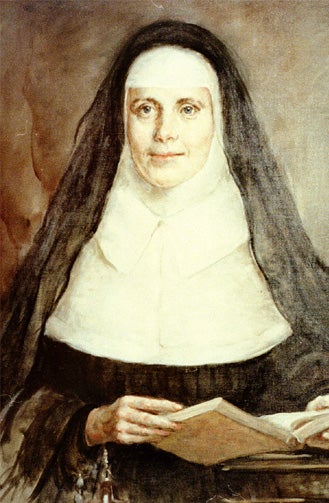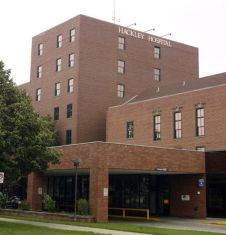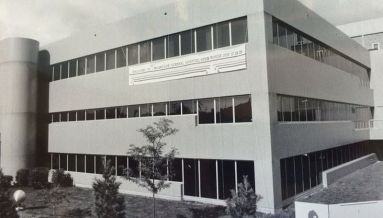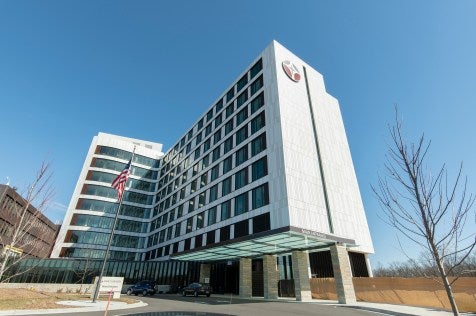A Proud Legacy of Service: Trinity Health Muskegon
April 18, 2022
By: Mary Ann Boyer
Categories: Community Health, Health & Wellness
Thestory of health care in Muskegon is long and complex. Over time, four hospitals grew and adjusted to changing community needs: Mercy Hospital, Hackley Hospital, Muskegon General, and Lakeshore Hospital (in Shelby). For a century, Mercy Hospital and Hackley Hospital each served the community. Over time, the two hospitals merged forming one, unified health ministry and brand, now known as Trinity Health. Here is how it all began:
In 1831, Catherine McAuley founded the Sisters of Mercy in Dublin, Ireland, to follow Christ in his compassion for suffering people. She and her Sisters established foundations to serve the poor, the sick, and the uneducated throughout Ireland and England.
In 1843, the Sisters of Mercy took their mission to the United States where they opened hospitals, schools, orphanages, and homes for women and girls at risk.
Sisters of Mercy Founded Mercy Hospital
On April 16, 1903, under the leadership of Sister Mary Joseph Miller and three Sisters of Mercy from the Big Rapids area — Sister Mary Catherine O’Connor, Sister Mary Patrick Connor, and Sister Mary Phillip Fitzgerald — founded Mercy Hospital in Muskegon.

The hospital opened its doors in the former home of L.G. Mason on Jefferson Street in downtown Muskegon. Despite additions made to the original hospital, it became necessary to build a new hospital for the growing Muskegon population. The new hospital opened its doors in 1921. Eventually a new wing was added in 1954.

Mercy led the community in providing new and first-time services to Muskegon that included coronary care (1965), ambulatory care (1965), an alcoholism care unit (1971), and hemodialysis (1972).
Responding to continued community growth, a new hospital was completed in 1973 on Sherman Blvd. In 1982, the first open-heart surgery was performed, establishing it as Muskegon’s only heart hospital along the lakeshore of West Michigan.
Hackley Hospital’s Legacy of Healing

To serve Muskegon residents, Hackley Hospital was completed in 1904, thanks to local lumberman and philanthropist Charles H. Hackley and the community. The original hospital was located on Clinton Street.
Charles Hackley had a heart for the less fortunate. Part of his endowment for the hospital was earmarked for patients who couldn’t afford to pay for health care.
In 1905, the Hackley School of Nursing opened, training generations of nurses. Over the years, various wings and support building were added increasing the capacity to serve more patients. In 1982, the School of Nursing, closed and the original hospital was demolished making way for a more modern facility. In 2012, a new Emergency Center opened.
Lakeshore Community Hospital in Shelby affiliated itself with Hackley Health Systems in 1996 and began doing business as Hackley-Lakeshore Hospital.
Historic Mergers

In the mid-1990s, Muskegon General Hospital (founded in 1967 by staff of the former Muskegon Osteopathic Hospital) and Mercy Hospital entered into a Joint Operating Agreement (JOA). In 1998, when the JOA became a full merger with both hospitals operating under the name of Mercy General Health Partners.
In 2008, another merger took place between the two Muskegon hospital systems — Hackley Hospital and Mercy General Health Partners — bringing together the resources of all four hospitals under the umbrella of Trinity Health to serve the people through the County of Muskegon and beyond. That same year, the combined medical services were renamed Mercy Health Partners and became the largest employer in Muskegon.

As one health system operating two aging hospital facilities in Muskegon, it was decided to reduce service duplication and bring all acute care services in one modern hospital facility. A new, state-of-the-art, 358-bed hospital was built and opened in phases. In October 2020, the last patients were moved from the Hackley Campus, and the hospital was closed. Today, patients access expert, comprehensive health care at one location.
During the COVID-19 pandemic, Hackley Hospital reopened briefly to help serve patients. In October 2021, the hospital was demolished making way for the construction of Charles Hackley Middle School in 2023.
Today, Trinity Health Muskegon Hospital is on Sherman Blvd. Additional Trinity Health services are located throughout the greater Muskegon area, and from Ludington to Holland, including multiple providers’ offices, labs, pharmacies, outpatient health centers, and Urgent Care facilities.
A Commitment to Compassion, Transformation, and Healing Continues
In April 2022, Mercy Health across West Michigan announced that its name is changing to Trinity Health. Mercy Health has been a member of Trinity Health, a nationwide Catholic health system for 21 years. With locations throughout Michigan and in 24 other states, the new brand brings together the national recognition of Trinity Health with more than a century of local community-based patient care, teaching, research, and services.

In 2022, all Mercy Health facilities will gradually transition to the Trinity Health brand. The new hospital names in West Michigan will be Trinity Health Muskegon, Trinity Heath Shelby, and Trinity Health Saint Mary’s, Grand Rapids. Physician offices will be named Trinity Health Medical Group (formerly Mercy Health Physician Partners).
For the Muskegon community, this historic brand change means more access to doctors, research, clinical trials, leading technology, and care options for every stage of life. What remains is our dedication to serve our communities through our mission:
We, Trinity Health, serve together in the spirit of the Gospel
to be a compassionate and transforming, healing presence in our communities.




